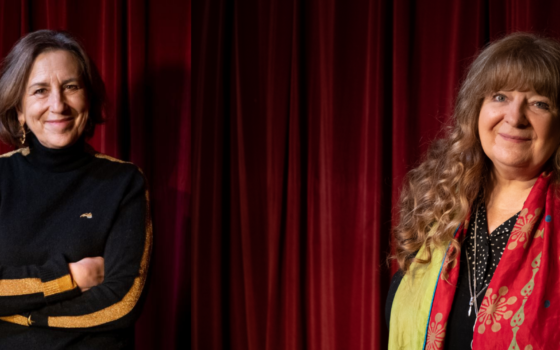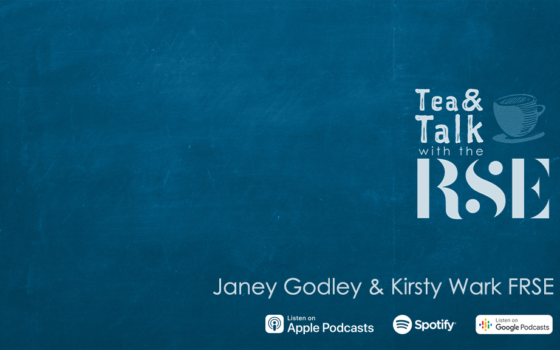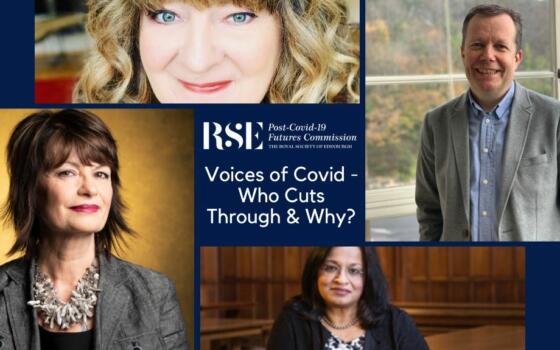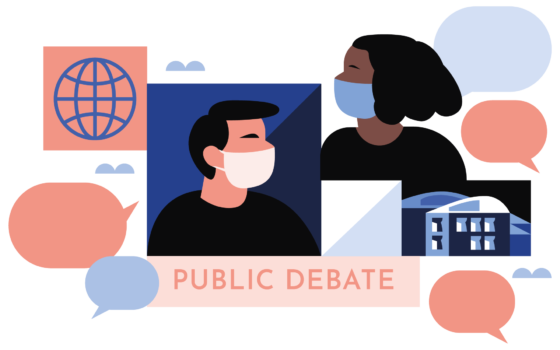The framing of science has rarely been as important as in 2020.
How scientists have talked about Covid-19 has been deeply influential in shaping our compliance with restrictions. And how scientists talk about vaccines, will shape their uptake. But how much attention are scientists usually able to give to how they communicate about science? The transfer of knowledge from science to public discourse, policy and practice is a scientific endeavour in its own right. But too often we behave as though science will speak for itself.
Science does not speak for itself.
People are not blank slates waiting to logically evaluate new information. Instead, we are stuffed full of other ways of reasoning. In particular, we use cognitive short cuts to enable us to interpret and understand the world. These short cuts or patterns of thinking are created through years of experience and expectation. They are taken-for-granted, and largely automatic, assumptions. And we use them to make meaning out of all sorts of inputs – including the things we hear about science. As Anaïs Nin once said: ‘We don’t see things as they are. We see things as we are’.
This means that when we hear about science that has not been well framed to avoid traps, we interpret it according to what we already think. For instance, when the scientist says: ‘Persistent, chronic stress in the early years of life can derail development with lifelong affects’; people frequently reach for their front of mind cognitive short cut to process this statement. As a result, their response is likely to be something like: ‘Yes, what doesn’t kill you, makes you stronger’. Of course, this is not what the scientist was trying to say.

We call this the ‘you say… they think’ problem.
Around 15 years ago, scientists on the U.S. National Scientific Council on the Developing Child recognised that powerful cognitive short cuts about early childhood development were a barrier to policy and practice learning from science. They began working with us at the FrameWorks Institute to use communications research to faithfully translate complex scientific concepts for policymakers and citizens.
Together, we have shown that science can be served credibly – and the public can be better informed – without serious distortions of complex concepts even as they are ‘translated’. For example, we identified ways to talk about the effects of persistent stress in the early years that do not trigger unhelpful cognitive short cuts about stress (see: Harvard’s Center on the Developing Child). This translated science of early childhood development is being used in places across the UK to shape discourse, policy and practice. Govan’s Together for Childhood partnership is one shining example.
There are some general principles we can apply to frame science well but we also need to conduct research to know how to frame issues best. For example, we’re working with the Wellcome Trust to help better framing and take up of vaccines. In the meantime, there are things that we can all do now that will help us dodge some of the traps that evidence shows confound efforts to be understood.
Here are two examples:
• Reframe don’t rebut: Avoid rebuttal and ‘myth-busting’ as there is robust evidence that shows these can be counter-productive techniques. Don’t name the thing you want people to forget.
Let me give a quick demo inspired by George Lakoff : Clear you mind and don’t think of an elephant. …What did you just think of? How big were its ears? To apply this to science: if you want to encourage vaccine take up, talk about the benefits of the vaccine. Don’t talk about anti-vaxxers.
• Explain rather than just describe: If you can explain why a problem exists, people are adept at reasoning what might be done about it.
If you just describe the problem, it’s much more difficult for people to reason what to do. They are likely to use a cultural model to figure it out – and there’s a good chance this won’t lead them to the conclusion you hope.
At the FrameWorks Institute we continue to work with partners to translate science so that it can influence discourse, policy and practice and we’d be delighted to hear about your experiences.
Kate Stanley leads FrameWorks UK
kstanley@frameworksinstitute.org





